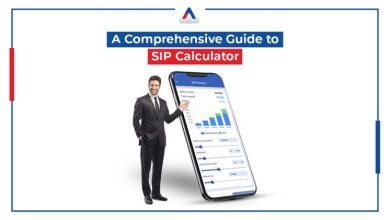Understanding the Difference: FSSAI Registration vs License

Introduction:
Food safety is a critical aspect of public health, and in India, the Food Safety and Standards Authority of India (FSSAI) plays a pivotal role in ensuring the safety and quality of food products. Businesses in the food industry are required to comply with FSSAI regulations, but there is often confusion surrounding the terms “FSSAI Registration” and “FSSAI License.” Let’s delve into the distinctions between the two and understand their respective implications for food businesses.
FSSAI Registration:
FSSAI Registration is a basic level of compliance that is mandatory for small-scale food businesses. This includes businesses with an annual turnover of up to ₹12 lakhs. The registration process is relatively straightforward and involves submitting basic details of the business, such as the name and address of the food business operator, and the type of food products being handled. Once registered, the business receives a unique 14-digit registration number that must be displayed on food product labels.
FSSAI License:
On the other hand, FSSAI License is required for medium to large-scale food businesses, including those with an annual turnover exceeding ₹12 lakhs. The licensing process is more comprehensive and involves a detailed scrutiny of the food safety management system, infrastructure, and compliance with FSSAI standards. There are three types of FSSAI Licenses: State License, Central License, and Registration for Importers. The type of license depends on the scale and nature of the business operations.
Differences:
Scope of Business:
FSSAI Registration is suitable for small businesses with an annual turnover up to ₹12 lakhs.
FSSAI License is mandatory for medium to large-scale businesses with an annual turnover exceeding ₹12 lakhs.
Documentation and Scrutiny:
FSSAI Registration involves a simpler documentation process and is usually granted without extensive scrutiny.
FSSAI License requires a more detailed documentation process, including a thorough inspection of the premises and adherence to specific food safety standards.
Validity and Renewal:
FSSAI Registration is typically valid for one to five years and can be easily renewed.
FSSAI License has a longer validity period (one to five years) and also requires renewal, with the renewal process involving a reassessment of compliance.
Importance of Compliance:
Compliance with FSSAI regulations is not only a legal requirement but also underscores a commitment to consumer health and safety. The food industry is dynamic, with evolving consumer preferences and global supply chains, making it essential for businesses to stay abreast of food safety standards. FSSAI compliance ensures that businesses adhere to hygiene and safety norms, preventing contamination and adulteration of food products. This, in turn, contributes to the overall well-being of consumers and bolsters the reputation of the food industry.
Challenges and Penalties:
While FSSAI compliance is crucial, businesses may face challenges in meeting the stringent standards set by the authority. Non-compliance can result in penalties, ranging from fines to the suspension of business operations. In extreme cases, non-compliant businesses may face legal action, tarnishing their reputation and causing financial losses. Therefore, understanding the specific requirements for registration or licensing and actively working towards compliance is not only a legal necessity but also a strategic imperative for long-term success.
Consumer Confidence and Market Access:
One of the significant benefits of obtaining FSSAI registration or license is the boost in consumer confidence. In an era where consumers are increasingly conscious of the quality and safety of the products they consume, displaying the FSSAI logo on food packaging instills trust. Additionally, FSSAI compliance facilitates market access, both domestically and internationally. Many retailers and distributors insist on FSSAI-compliant products, opening doors to a broader consumer base and potential export opportunities.
Adaptability to Regulatory Changes:
The food industry is subject to constant regulatory updates and changes to address emerging challenges and ensure public health. FSSAI, as a regulatory authority, regularly revises its standards to align with global best practices. Businesses that have a proactive approach to compliance can adapt more readily to these changes, positioning themselves as industry leaders committed to staying ahead of the curve. This adaptability not only ensures continued compliance but also demonstrates a commitment to continuous improvement in food safety practices.
Certification Beyond Compliance:
While FSSAI registration and license serve as mandatory certifications, some businesses choose to go beyond the minimum requirements and obtain additional certifications. Certifications such as ISO 22000 for food safety management systems or HACCP (Hazard Analysis and Critical Control Points) provide an extra layer of credibility. These certifications signify a commitment to the highest standards of food safety and quality management, showcasing a dedication to excellence that can set businesses apart in the marketplace.
Education and Training Initiatives:
Compliance with FSSAI standards often necessitates a well-trained workforce capable of implementing and maintaining food safety practices. Forward-thinking businesses invest in ongoing education and training initiatives for their staff, ensuring that everyone from production line workers to management is well-versed in the latest food safety protocols. This not only enhances compliance but also fosters a culture of responsibility and accountability within the organization.
Technological Integration for Compliance:
The advent of technology has significantly eased the burden of compliance for businesses. Integrated software solutions can streamline processes related to documentation, quality control, and traceability. Automated systems help businesses track and manage their compliance status, making it easier to generate reports, monitor inventory, and respond promptly to any regulatory changes. Embracing technology not only facilitates compliance but also enhances overall operational efficiency.
Global Harmonization and Export Opportunities:
In an era of globalized trade, harmonization of food safety standards is crucial for businesses eyeing international markets. FSSAI, aligning itself with international standards, facilitates easier access to global markets. Businesses with FSSAI certification find it easier to navigate the complex web of international regulations, making them more attractive to potential overseas partners and consumers.
Continuous Improvement:
Compliance with FSSAI standards is not a one-time endeavor; it is an ongoing commitment to continuous improvement. Successful businesses view compliance as a dynamic process, regularly reviewing and updating their systems to meet evolving regulatory requirements. This approach not only ensures sustained compliance but also positions the business as a proactive player in the industry, ready to adapt to new challenges and innovations.
NOTE: Now apply for Fssai License Renewal through fssai portal.
Conclusion:
In conclusion, FSSAI Registration and License serve as essential tools for ensuring food safety and quality. While registration is suitable for small-scale businesses, licensing is imperative for medium to large-scale operations. Understanding the differences between the two and complying with the appropriate requirements is crucial for businesses in the food industry to thrive and contribute to a safer and healthier food ecosystem. By adhering to FSSAI regulations, businesses not only meet legal obligations but also build trust among consumers by prioritizing the safety and quality of their food products.



